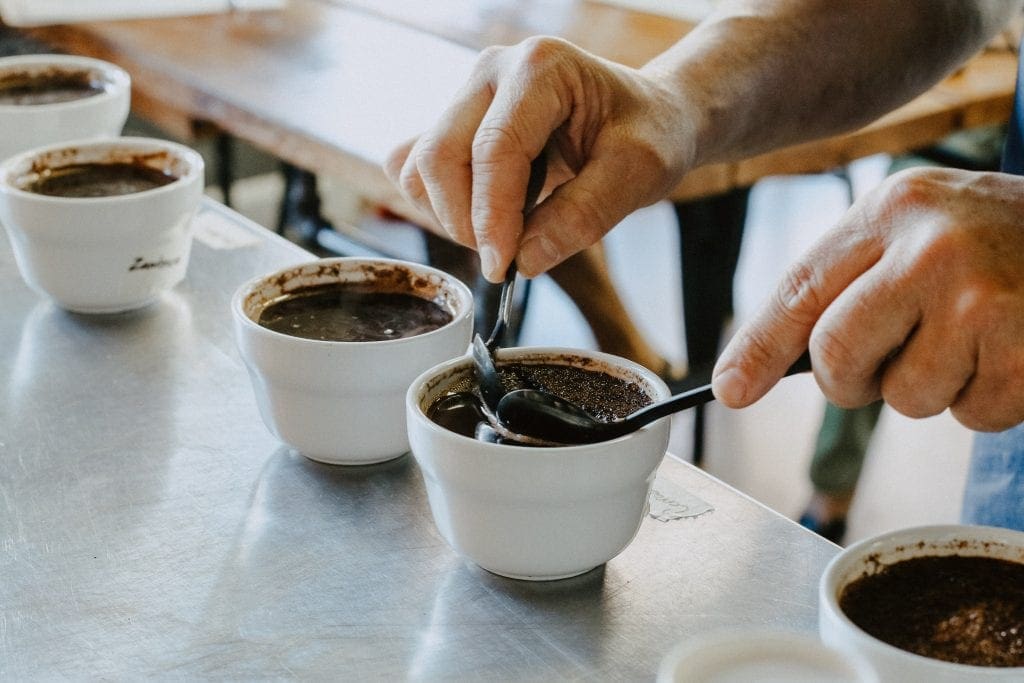In recent years, the medical world has proven that there are numerous health benefits to the world’s favorite vice: coffee. The stigma of our beloved beverage has shifted in the 21st century as extensive research has shown that coffee isn’t bad for you after all. That is, of course, in moderation and context. Nowadays, the known health benefits of drinking coffee range from increased energy levels to longer life spans. Yet, as all of us coffee lovers know, the real magic in our favorite drink comes from its ability to improve how we perform. But what if we didn’t need to actually drink coffee to capture some of this real magic? A study led by the Stevens Institute of Technology in Hoboken found that simply the smell of coffee improves performance. Let’s take a look at how they did it and what they found.
Breaking Down the Study
Professor Adriana Madzharov of the Stevens School of Business was interested in answering the question, “Can just the smell of coffee improve performance?” Working with Temple University and Baruch College colleagues, Madzharov and her team published their remarkable findings in the Journal of Environmental Psychology in April of 2018. They were able to prove that the smell of coffee did improve performance on analytical tasks for participants in the study. Additionally, her team also found that participants thought and expected the scent alone would improve performance, demonstrating a placebo effect similar to drinking coffee.
How They Did It
Madzharov and her team started by gathering up roughly 100 business students and splitting them into two groups. Both groups were then asked to take a 10-question GMAT algebra test in computer labs. One group had the pleasure of taking the test in a room with a coffee scent circulating throughout the atmosphere. In contrast, the control group had to take the challenging exam in a dull, unscented classroom. The results spoke for themselves, as the group in the coffee-scented room scored significantly higher on the tests than the control group. But Madzharov and her team weren’t entirely done with their research.
The team wanted to know the impact of the placebo effect. Did the students expect higher performance, or did it simply happen? To answer this question, the team conducted a follow-up survey. This time, they brought in a new group of more than 200 subjects. They then asked these subjects about their thoughts on various scents and any effects they believe they might have on human performance. They found that the participants believed coffee-scented rooms would make them feel physiologically stimulated, more so than that of unscented or florally scented rooms.
Madzharov’s research clearly showed that the smell of coffee improves performance. It is clear that the placebo effect was in play here, just as it often is when one consumes coffee. Yet, we now know that one’s expectations don’t solely elicit the numerous benefits of drinking coffee. Drinking coffee produces physiological responses beyond what mere belief is capable of. Is smelling coffee the same?
The Power of Smell

Photo by René Porter
Suppose smelling coffee naturally produces beneficial physiological responses beyond the placebo effect and similar to that of drinking coffee. In that case, the magic of this beautiful beverage is more fascinating than we could’ve imagined. But, before investigating further into how exactly the smell of coffee improves performance, we need to understand the process of smelling a little bit more. (I know, riveting stuff.)
How Does Smelling Work?
Smelling is a highly complex activity. Therefore, we’ll focus on understanding this in its simplest terms. Essentially, when we inhale a fragrance, signals are sent to the olfactory bulb, which runs from the nose to the base of the brain. It is here that we interpret these signals as given smells. What’s particularly important about the olfactory bulb is its proximity to the amygdala (responsible for processing emotions) and the hippocampus (linked with memory and cognition). These direct connections are why it’s believed we tend to have such strong associations with given smells.
Essentially, we smell something for the first time and, in doing so, attach some emotional response to it. Personal experience, external forces like those around us, or societal norms, can all influence these responses. We can then expect the given smell to generate an emotional response that becomes a conditioned behavior over time. This is significant because these associations can influence mood (how we feel), which in turn affects cognition (how we think), which ultimately generates behavior (how we act). Therefore, the smell of coffee might also improve performance because of the personal association we attached to it.
Despite how minuscule it might seem in everyday life, smell is one of our more sophisticated senses as humans. In fact, in 2013, it was demonstrated that more brain activity is generated by smell than sight. Smell measured significantly higher brain activity when comparing levels between smelling a rose and looking at one. The olfactory bulb’s proximity with the amygdala and the hippocampus is likely responsible for the higher brain activity. This deep level of sophistication again points to the notion that smell likely produces physiological responses naturally and through expectation.
Supporting Evidence
Additional research to support the idea that the smell of coffee improves performance came slightly after Madzharov in 2019. These researchers found that a one-time inhalation of a coffee fragrance enhances attention span, working memory, and alertness. However, they found little evidence of its impact on mood, specifically related to stress levels. These findings demonstrate further evidence that smelling coffee improves performance and suggests naturally occurring responses from a physiological perspective. Essentially, this research affirms the evidence brought forth by Madzharov and adds another layer of sophistication to the phenomena.

Photo by John Schnobrich
What Does it all Mean?
For starters, it’s evident that the work of Madzharov and her team illustrates that the smell of coffee improves performance. They unquestionably show that the placebo effect certainly was a significant influencer in such behavior outcomes. But now that we understand the act of smelling more and have seen additional research, we can appreciate that smell likely has a driving power in us that’s more sophisticated and powerful than we may have realized. Either way, it’s clear that smelling coffee is bound to produce positive side effects for us, via a mix of expectation, personal experiences and associations, and naturally occurring processes beyond our control.
Hopefully, we’ll come to learn more about the power of smell in years to come. But for now, it makes you wonder, do we really need to drink that late-night cup of coffee, or will a few whiffs of coffee beans suffice? Maybe our sense of smell might change the way we work just how listening to music in the office has become commonplace in recent years due to supporting research. We’re always looking for ways to inherently increase productivity, and perhaps our sense of smell deserves more attention. Regardless, we now have even more reason to hold tight to our cherished vice.
Have you noticed that just t smell of coffee improves your performance? Let us know in the comments below.
Main Photo by Battlecreek Coffee Roasters
About the Author/s
Garrett is a writer at The Digest. He currently lives in Astoria, NY, and loves writing about topics that make readers think. His passions include film, sports, traveling, and culture.
